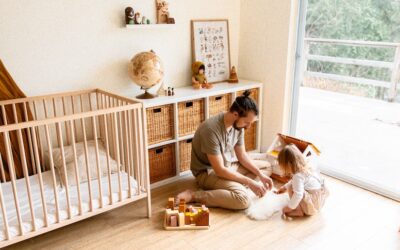Dr. Jann Blackstone explains and defines the difference between coParenting and Parallel Parenting in the following way:
coParenting is for those parents who can problem-solve together in the best interest of the child, even though they no longer live together. The child goes easily between homes while the parents attend school functions at the same time and compare notes on a regular basis. Parental interaction is cordial and there is a forum for conflict resolution in place to head off problems, should they arise. If done properly, a child continues to get the best of both parents even after they break-up. Tension is kept to a minimum.
Parallel Parenting is for those parents who may or may not share custody, but cannot interact or problem solve. The parents keep everything completely separate, assign specific days to attend extra-curricular activities or school events, do not attend doctor’s appointments together, and share information minimally, mostly in writing. Since going back and forth between homes with high conflict parents can be psychologically and emotionally detrimental to a child, the parenting plan associated with parallel parenting may not be an equally shared parenting plan, but one where there is an established primary parent.
Parallel Parenting should be looked at as a last resort option when every attempt has been made to coParent. In a Parallel Parenting scenario, the boundaries between both parents are clear and laid out. Parallel Parenting would look something like this:
Communication is kept to a minimum between parents. Any and all communication involving the children should be done in writing and normally via email. The parents share no personal information and emails are kept brief, to the point, and business-like. The on-duty parent does not communicate with the other parent during their access time unless there is a medical emergency or situation.
Do not attend child-related functions together. When your child has a school or extracurricular event, or parent/teacher conferences, you attend separately. While it’s better for your child to see you together, it can be harmful if that together time comes with animosity, tension, and conflict. If you’re in a parallel parenting situation, be sure that you contact the school and any programs to determine dates of important events, to ensure that you don’t miss anything. In this scenario, do not rely on information about events from your ex or your child.
When you’re Parallel Parenting, dropping off/picking up your child should not be a stressful situation for your child. Be sure to wait in the car or have your ex wait in the car and send the child out to the other parent. You and your ex should not be seeing one another or have any type of verbal exchange.
Staying In-The-Know is important. Be sure to be in touch with your child’s teachers, doctors, therapists and anyone else who can provide information on the mental and physical well-being of your child. Establish a system that works for you so that you’re always kept in the loop.
Perhaps your situation falls somewhere in the middle of these two options? Maybe you can see your ex for drop off and pick up but you simply can’t sit together at a school function. There’s no black and white when it comes to divorce or parenting. Only you can determine what protocol works best in your situation, and you may find over time that your needs change.





